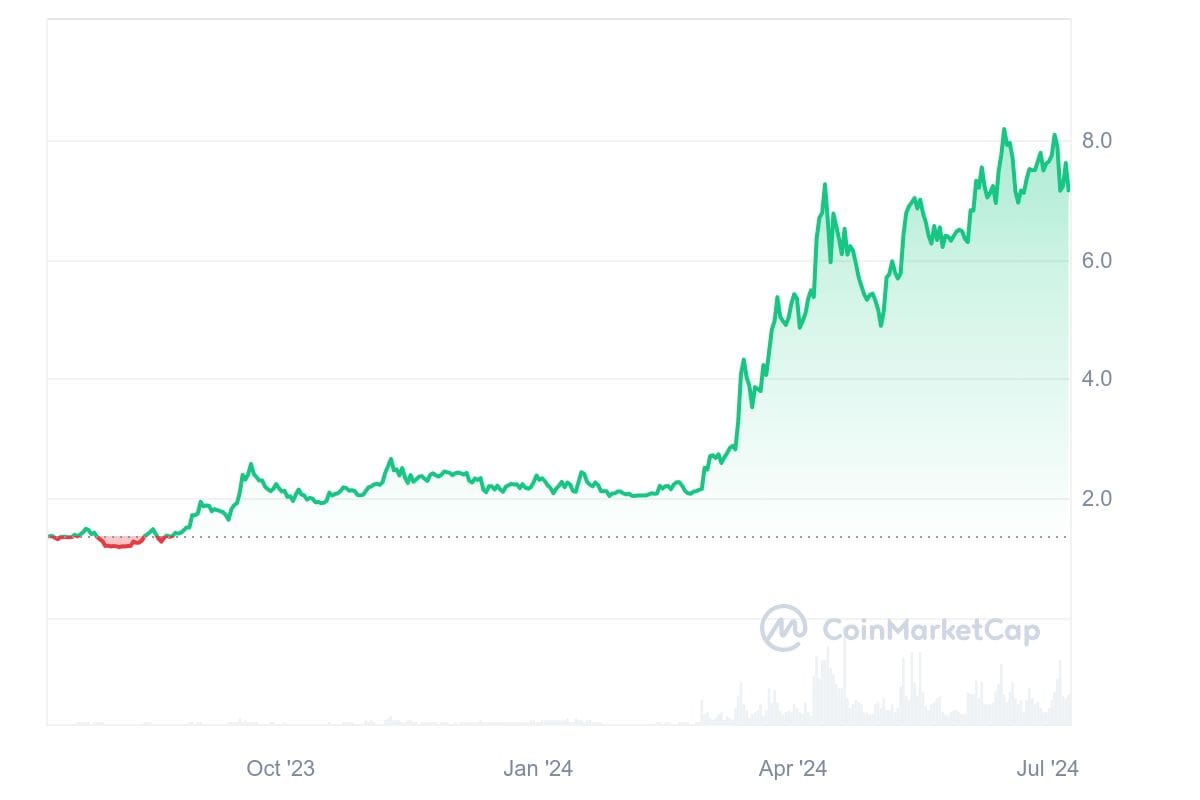Telegram's TON Blockchain Gains Momentum

Among the most successful cryptocurrency projects of the year is one associated with Telegram Messenger, WhatsApp's main competitor whose blockchain ambitions have already angered US authorities.
Even if there has been a general upswing in the cryptocurrency market, with Bitcoin reaching new heights until its latest decline, The Open Network (TON) blockchain has taken centre stage.
Throughout 2024, TON has defied market trends with a 1,400% increase in total value locked (TVL), which briefly exceeded $1 billion. This surge in value has propelled TON into the top ten cryptocurrencies by market capitalization, and is currently valued at approximately $18 billion.

The native cryptocurrency of TON has seen its price surge from $2.33 at the beginning of the year to $7.15, reflecting growing investor confidence and market demand.
Harnessing Telegram's User Base

Central to TON's success is its strategic alignment with Telegram, which has over 900 million monthly active users globally. Leveraging this extensive user base, TON aims to transform Telegram into a comprehensive "super-app," integrating social media, gaming, and potentially financial services within its ecosystem. This ambitious vision positions Telegram uniquely in the competitive landscape of digital platforms.
A notable component of TON's ecosystem expansion includes its foray into gaming through titles like Hamster Kombat. Launched under Telegram's umbrella as a "mini-app," Hamster Kombat has swiftly become one of the world's fastest-growing games, attracting millions of users globally every day, reaching some 239 million users ahead of its token launch, according to Telegram founder and CEO Pavel Durov. This success underscores Telegram's strategic pivot towards integrating entertainment and social engagement into its platform, potentially enhancing user engagement and retention across its ecosystem.
Future prospects
In a bid to enhance scalability and transaction efficiency, TON is integrating Layer 2 solutions, similar to those pioneered on Ethereum. Solutions like Atlas Protocol and TON App Chain (TAC) are facilitating faster transaction speeds and lower costs, appealing to developers and decentralized finance (DeFi) applications looking to leverage TON's growing infrastructure.
TON has already made significant strides in blockchain technology. The platform's architecture supports a wide array of decentralized applications (dApps), aiming to provide a robust environment for developers to innovate and deploy scalable solutions.
However, despite its promising trajectory, TON faces regulatory hurdles, particularly concerning Know Your Customer (KYC) and anti-money laundering (AML) compliance, which are crucial for sustaining long-term growth and investor confidence.
Still, TON remains optimistic about its future prospects, buoyed by ongoing technological advancements and strategic investments from firms like Pantera Capital. The ecosystem's evolution, marked by enhanced functionalities and expanded use cases, aims to redefine digital communication and financial interactions on a global scale.
Telegram's 2018 ICO raised $1.7 billion for its TON blockchain project through the sale of "Gram" tokens. The SEC argued that Grams were unregistered securities under US law, leading to a lawsuit aimed at halting the token distribution. Despite Telegram's efforts to defend its position, a US district court sided with the SEC, granting a preliminary injunction in October 2019. This legal battle culminated in June 2020 with Telegram agreeing to settle the case by paying $18.5 million in penalties and returning $1.2 billion to investors as it missed a deadline to launch its TON platform.
